Everything You Need to Know About Water Heater Replacement Cost
When considering water heater replacement, having a clear understanding of the costs involved is essential. Whether you're opting for an electric or gas water heater, being informed about the potential expenses associated with upgrading this essential appliance is crucial. By conducting thorough research and gathering information on cost factors, you can make a well-informed decision that fits your budget and ensures a dependable hot water system for your home.

When do you need to replace a water heater?
Determining the right time to replace a water heater is crucial for ensuring a steady supply of hot water in your home. Key factors to consider include:
Inefficiency: If your water heater is no longer providing hot water as efficiently as it used to, it may be time for an upgrade. Newer models are often more energy-efficient, which can lead to cost savings on your energy bills.
Rust or corrosion: Rust-colored water or visible corrosion on the water heater tank are signs of potential issues. Rust and corrosion can lead to leaks and other problems, necessitating a replacement.
Insufficient hot water: If you are experiencing a decrease in hot water supply or are unable to maintain consistent hot water, it may be a sign that your water heater is no longer functioning optimally.
Changing household needs: If your household size has increased or your hot water demands have changed, you may need a larger capacity water heater to accommodate your needs.
By considering these factors and consulting with a professional plumber, you can make an informed decision about when it's time to replace your water heater and ensure a reliable supply of hot water in your home.

What affects the cost of replacing a water heater?
The cost of replacing a water heater can vary depending on several factors, which makes it essential to consider these aspects when budgeting for the replacement. To get accurate estimates and guidance tailored to your specific situation, it's advisable to consult with a professional plumber or water heater specialist. They can help you assess the following factors that can influence the overall price:

Type of water heater: The cost can vary between different types of water heaters, such as tankless, storage tank, or heat pump models.
Size and capacity: Larger capacity water heaters may have higher upfront costs compared to smaller ones.
Energy efficiency: Energy-efficient models might have a higher initial investment but can lead to long-term savings on energy bills.
Installation requirements: The complexity of the installation, including any necessary modifications or upgrades, can impact the overall cost.
Brand and quality: Different brands offer varying price points based on their reputation and features.

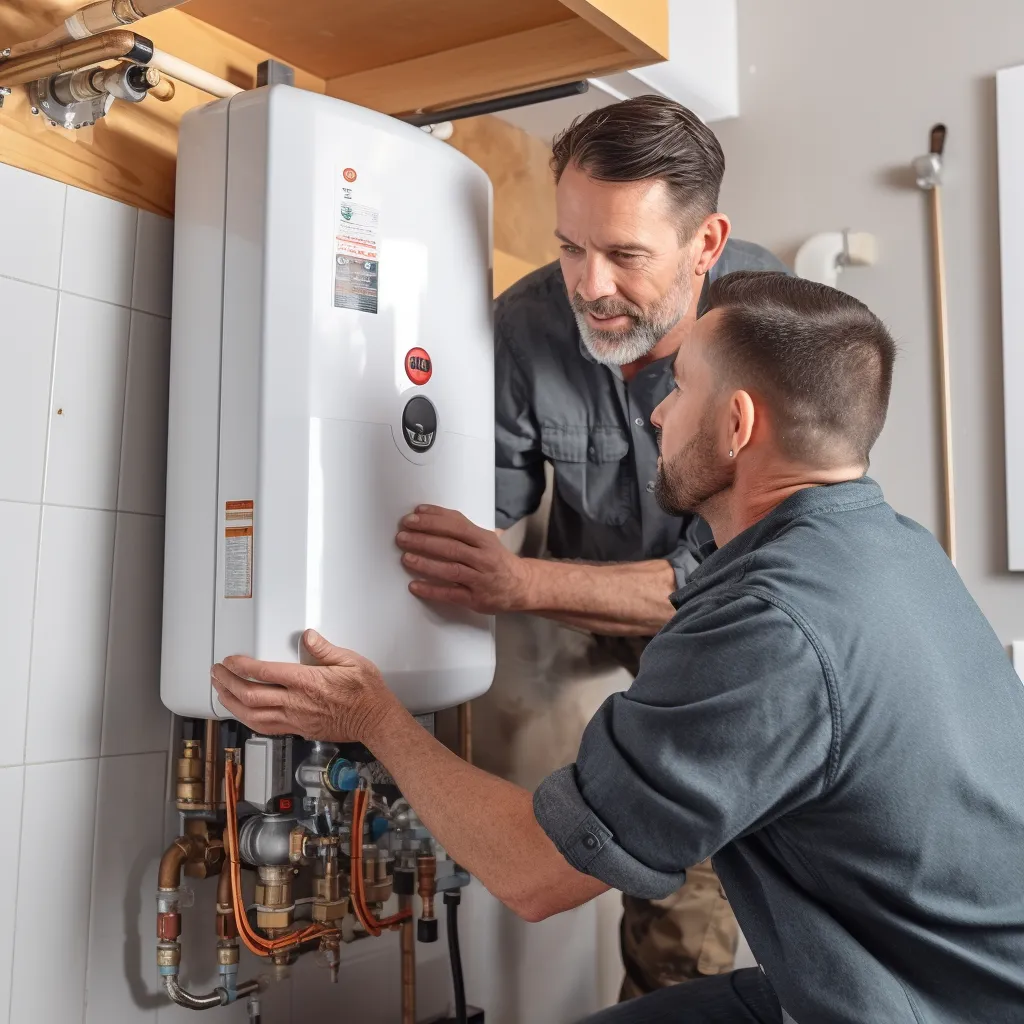
Replacing with energy-efficiency in mind
Investing in an energy-efficient water heater offers significant benefits that positively impact both your finances and the environment. Some of the key advantages include:
Reduced Energy Bills: Energy-efficient water heaters consume less energy to provide the same amount of hot water, leading to lower utility bills. Over time, these savings can add up, making the initial investment worthwhile.
Environmental Impact: Energy-efficient water heaters contribute to lower greenhouse gas emissions and reduced overall energy consumption. By choosing a more eco-friendly option, you can help combat climate change and reduce your carbon footprint.
Enhanced Performance: Energy-efficient models often incorporate advanced technologies that improve heating efficiency and maintain a consistent supply of hot water. This ensures you have reliable access to hot water whenever you need it.
Longer Lifespan: High-quality, energy-efficient water heaters are designed to withstand wear and tear, resulting in a longer operational lifespan. This means fewer repair or replacement costs in the long run.

How to calculate the size
of the water heater you need for your home
To determine the appropriate size for your hot water heater, it is recommended to consult with a professional who can assess your specific needs and provide personalized recommendations. Factors that affect the size you need include
Household Size: The number of people living in your home directly influences the amount of hot water required daily. Larger households generally need larger water heaters to meet their demands.
Hot Water Usage: Consider your daily hot water activities, such as showers, laundry, dishwashing, and other household tasks. The frequency and duration of these activities impact the amount of hot water needed.
Peak Hour Demand: Determine the busiest time of the day when hot water usage is at its highest. This "peak hour demand" helps size the water heater to ensure an adequate supply during peak times.


Research the different types of water heaters
When it comes to choosing a water heater for your home, you have a variety of options to consider. Traditional tank water heaters store hot water in a large tank and keep it heated until needed. In contrast, tankless water heaters provide hot water instantly on-demand without a storage tank. Hybrid water heaters combine features from both tank and tankless systems, ensuring energy-efficient operation and a continuous supply of hot water. Solar water heaters use the sun's energy to heat water, reducing reliance on conventional energy sources. Lastly, heat pump water heaters extract heat from the surrounding air or ground, making them both energy-efficient and cost-effective. By carefully assessing your household's unique needs, energy efficiency preferences, and budget, you can determine the ideal water heater type for your home.
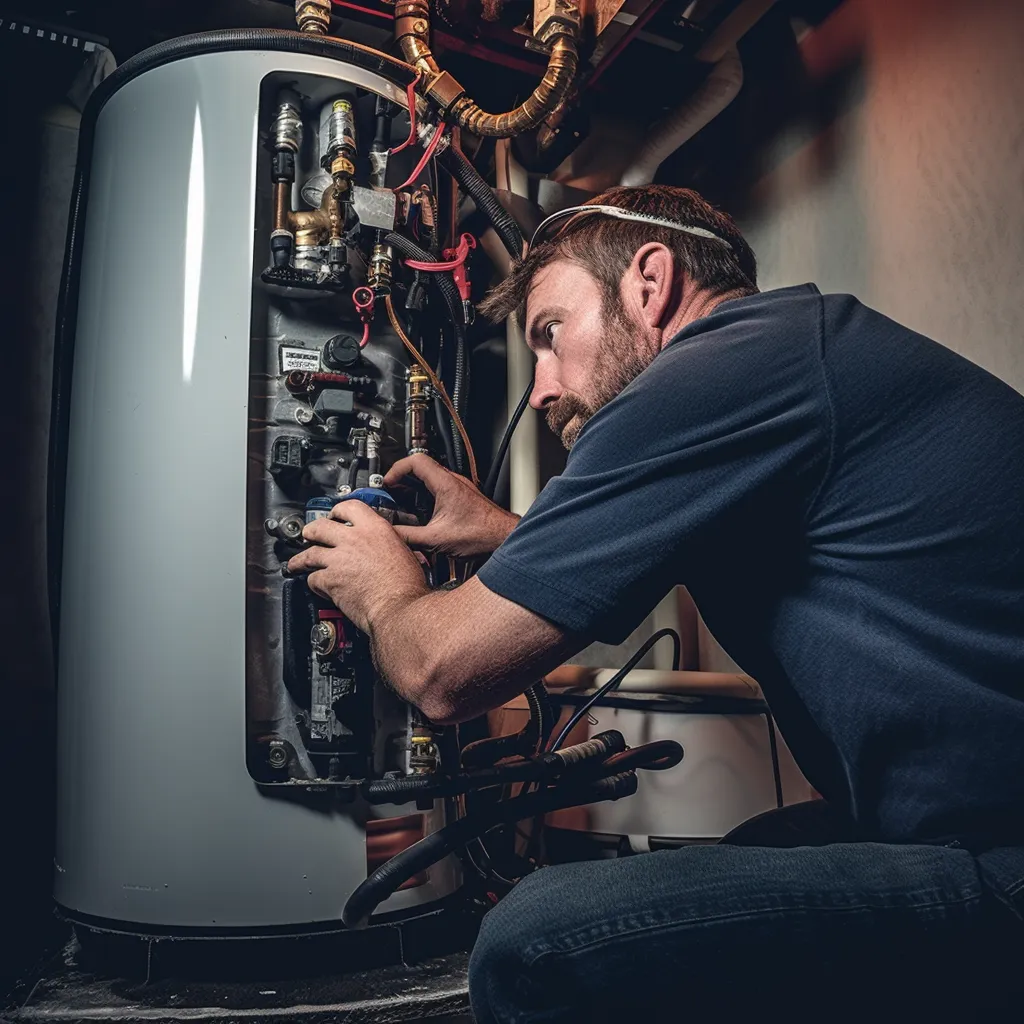
Cost of each type of water heater
Indeed, replacing water heaters can be a significant investment, and the cost can vary based on several factors. The type of water heater, its capacity, and the brand are among the key factors that influence the price. Additionally, installation expenses and any necessary modifications to the plumbing or electrical systems can add to the overall cost. While it's essential to consider the upfront expenses, it's equally important to weigh the long-term benefits of an energy-efficient and reliable water heater that can lead to savings on energy bills and improved performance. Consulting with a professional and conducting thorough research can help homeowners make an informed decision that aligns with their budget and ensures an optimal hot water solution for their home.
Traditional tank heaters: Lower upfront cost, but higher energy bills and shorter lifespan.
Tankless heaters: Higher upfront cost, but longer lifespan and lower energy bills.
Heat pump heaters: Moderate prices and significant long-term savings.
Solar heaters: Environmentally friendly with potential long-term savings, but expensive upfront.
Smart heaters: Innovative models with remote control capabilities and energy-saving features.
Condensing heaters: Highly efficient but come with a higher price tag.
Choosing between gas and electric models: Gas heaters have lower upfront costs, while electric heaters can be more energy-efficient.
Direct vent water heaters: The most affordable option.
Power vent water heaters: Slightly more expensive.
Cost of installation and ongoing maintenance
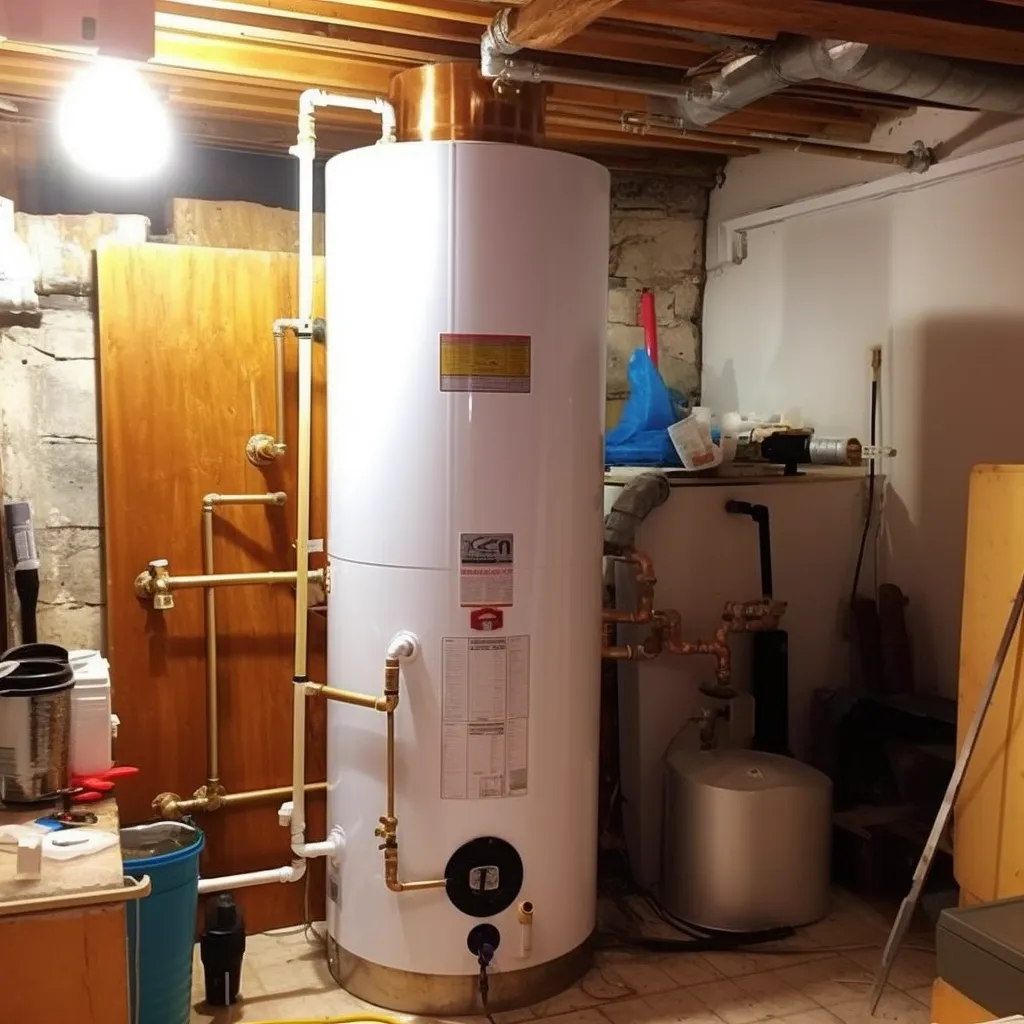
When choosing a water heater, it's essential to consider the installation and maintenance costs. Here's what you should keep in mind:
Tank water heaters: Lower installation costs, but maintenance expenses can be higher over time.
Tankless water heaters: Higher installation costs, but lower maintenance expenses, leading to long-term savings.
Heat pump water heaters: Medium-priced installation costs, similar to tankless heaters, with slightly higher maintenance expenses.
Solar water heaters: Higher installation costs due to their connection to the home's plumbing system.
Consider fuel costs: Gas heaters are often more cost-effective than electric models due to lower energy costs. Availability of fuel may vary based on your location.

How to get an accurate estimate
for the cost of a water heater
Getting an accurate estimate for the total cost of replacing your water heater, including installation, may require some research and evaluation.
When choosing the right water heater for your home, take into account your household size and hot water usage patterns to ensure the appropriate size and type that best meets your needs.
To evaluate the installation and upgrade costs for your water heater system, obtain quotes from local plumbing companies. This will help you make an informed decision and find the best option that fits your budget and requirements.
When considering the cost of a water heater, take into account not only the initial price of the unit but also any warranties or additional features that may be required.
Tips to save money on installing a new water heater
When purchasing a new water heater, consider these money-saving tips to make a cost-effective and efficient choice:

Opt for an energy-efficient model, such as a condensing or tankless water heater. Although they may have higher upfront costs, their long-term energy savings can significantly offset the initial investment.
Check for local or state rebates and incentives for energy-efficient water heaters. Many governments and utility companies offer financial incentives to encourage the adoption of eco-friendly appliances.
Choose the right size water heater that suits your household's hot water needs. An appropriately sized unit will prevent unnecessary energy consumption and reduce operating costs.
Follow a maintenance schedule to keep your water heater operating efficiently. Regularly flushing the tank and checking for leaks can prolong the appliance's lifespan and improve its performance.
What to do if you need services
to replace your water heater
When seeking a professional to replace your water heater, consider these tips to ensure you choose the right expert for the job:
Ensure the professional is licensed, insured, and certified to handle water heater replacements.
Inquire about the warranties provided for both the water heater unit and the installation work.
Ask for an estimated timeline for the replacement and any potential disruptions to your daily routine during the process.
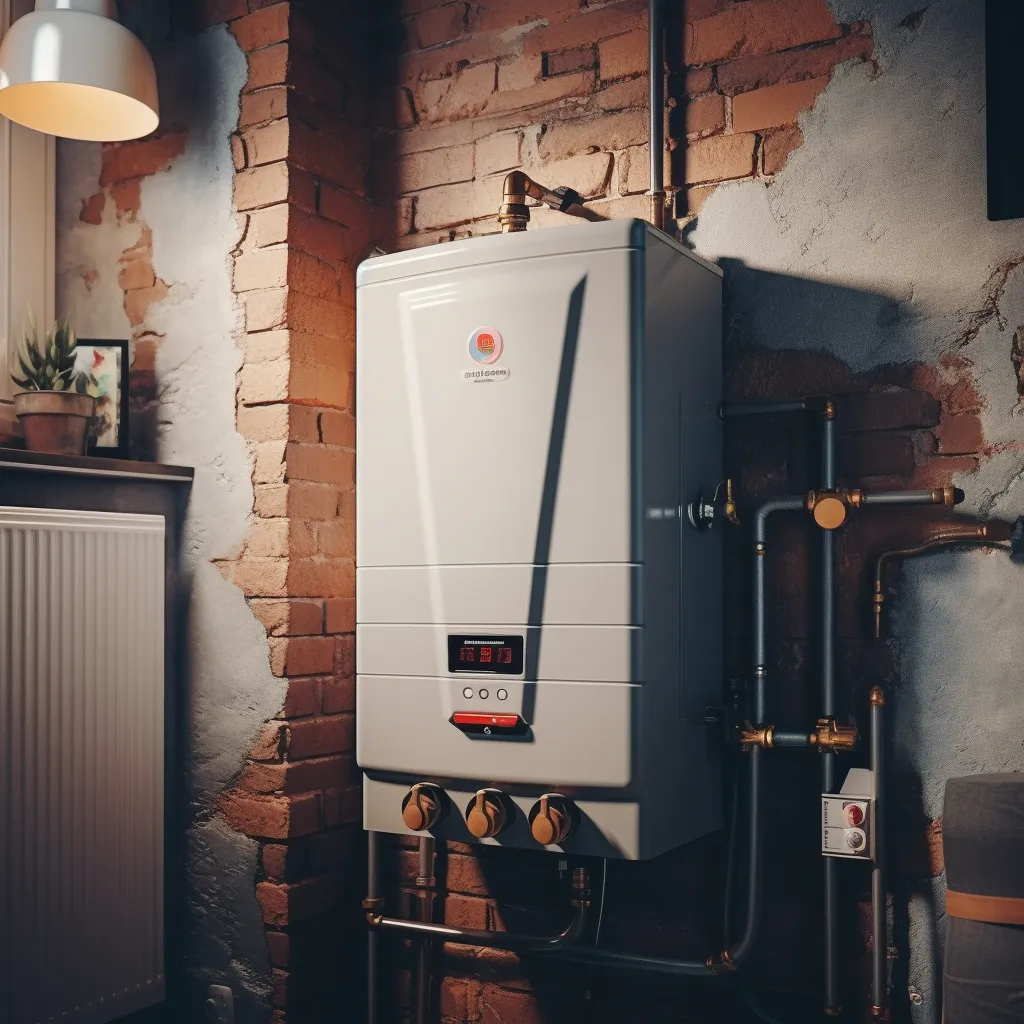
A reliable professional will be able to:
Our water heater services cater to all your needs:
We assess your water heater's condition and advise on repair or replacement.
Receive a comprehensive estimate covering labor, materials, and taxes.
We help you choose the ideal water heater based on your needs and budget.
Our skilled technicians handle the entire installation process smoothly.
We offer warranty coverage for both workmanship and parts, ensuring your satisfaction and peace of mind.

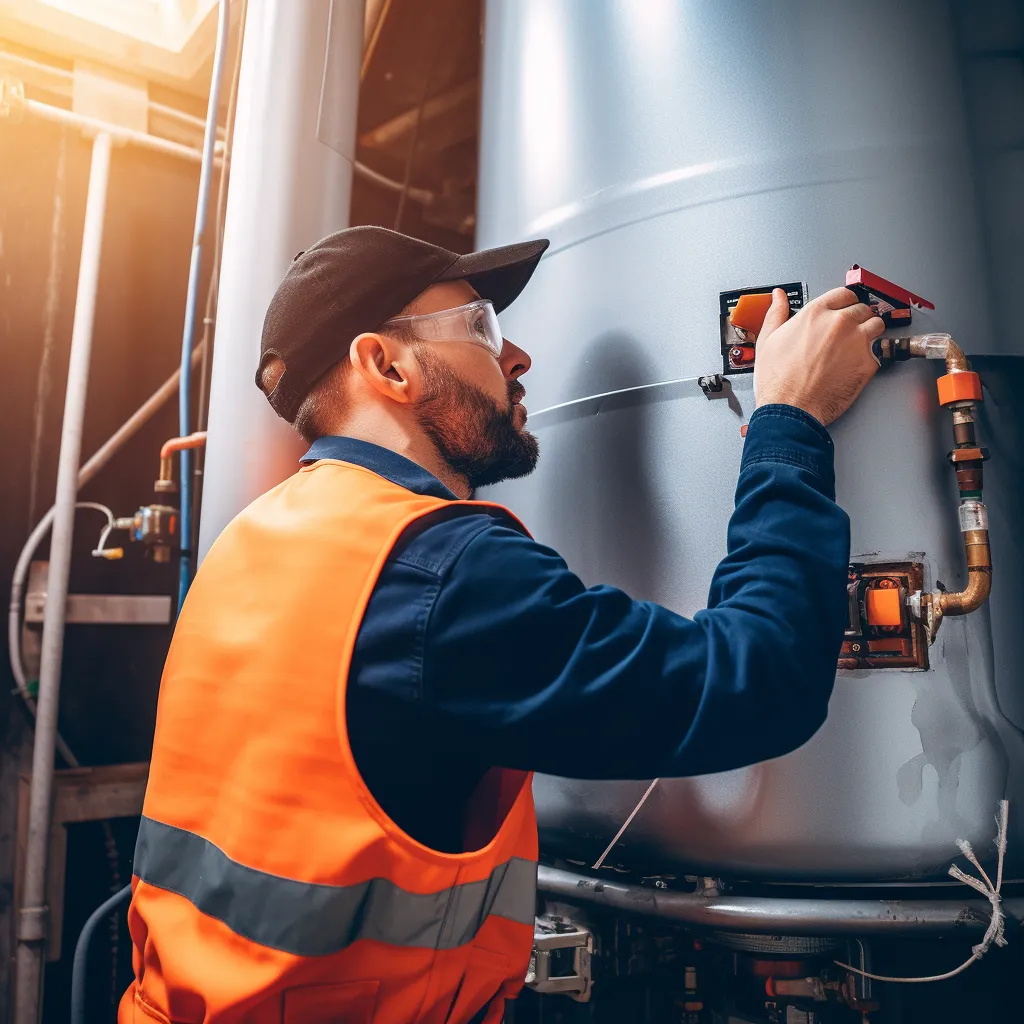
Water heaters don't last forever
Deciding whether to replace or maintain your water heater is crucial. The lifespan of a water heater typically falls between 6 to 12 years, depending on usage and efficiency. Several factors influence the cost of replacement, such as the type and size of the water heater, installation and maintenance fees, and potential savings from rebates, incentives, or extended warranties. Conduct thorough research and compare various water heater models to make an informed choice. Consulting a licensed professional can offer valuable assistance and may lead to long-term time and cost savings.
Contact Us
GET IN FULL TOUCH
PHONE: (209) 370-0794
EMAIL:
orlando@waterheatermodesto.com
Westside Plumbing
Modesto, CA 95354
